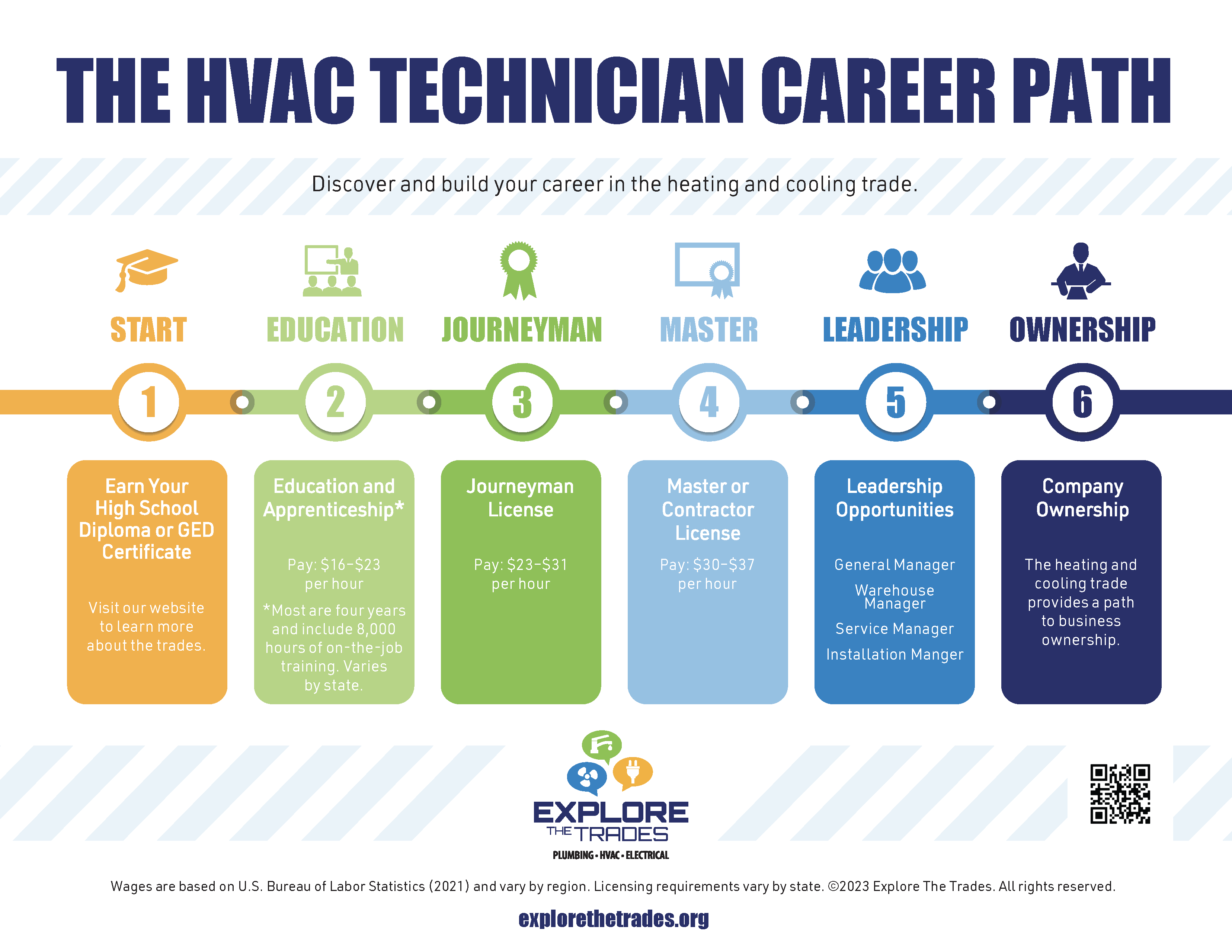HVAC Technician Career Path in Georgia: From Beginner to Expert
The HVAC Technician Career Path in Georgia
Are you considering a career as an HVAC technician in Georgia? If so, you’ve chosen a field with excellent job prospects and opportunities for growth. In this article, we will explore the career pathway for HVAC technicians in Georgia, from entry-level positions to advanced roles. We will also discuss the salary potential, certifications, job description, and qualifications needed to advance in this field.
Entry-Level HVAC Technician Positions
As a beginner in the HVAC industry, you will typically start as an entry-level HVAC technician. These positions often require a high school diploma or equivalent. In this role, you will assist experienced technicians in installing, repairing, and maintaining heating, ventilation, and air conditioning systems. Entry-level HVAC technicians gain hands-on experience and learn the fundamentals of the trade.
Salary Potential for HVAC Technicians in Georgia
The salary of an HVAC technician in Georgia can vary based on factors such as experience, certifications, and location. According to the U.S. Bureau of Labor Statistics, the median annual wage for HVAC technicians in Georgia was $49,280 as of May 2020. However, it’s important to note that with experience and additional certifications, HVAC technicians can earn significantly higher salaries.
Certifications for HVAC Technicians
Obtaining certifications can greatly enhance your career prospects as an HVAC technician in Georgia. The most recognized certification is the EPA Section 608 certification, which is required by federal law for anyone handling refrigerants. Additionally, organizations such as North American Technician Excellence (NATE) offer certifications that demonstrate proficiency in specific HVAC specialties.
Job Description and Duties
HVAC technicians in Georgia are responsible for installing, maintaining, and repairing heating, ventilation, and air conditioning systems. Their duties may include inspecting and testing systems, identifying problems, replacing or repairing defective parts, and ensuring that systems operate efficiently. HVAC technicians must also have strong problem-solving skills and the ability to work independently or as part of a team.
Qualifications for Advancement
To advance in the HVAC industry in Georgia, it’s essential to continually enhance your skills and knowledge. Consider pursuing additional certifications or completing specialized training programs. These can include courses on advanced HVAC systems, energy efficiency, or building automation. With the right qualifications and experience, you may have the opportunity to move into supervisory roles, become a project manager, or even start your own HVAC business.
Job Opportunities in Georgia
Georgia offers a range of job opportunities for HVAC technicians. The demand for skilled HVAC professionals is expected to grow in the coming years, driven by the need for new installations, system upgrades, and maintenance. HVAC technicians can find employment in residential, commercial, and industrial settings. Major cities like Atlanta, Savannah, and Augusta have a high concentration of HVAC jobs, providing ample opportunities for career growth.
Conclusion
The HVAC technician career path in Georgia offers a promising future for those interested in the field. Starting as an entry-level technician, you can gain experience and progress through certifications to advance your career. With competitive salaries, diverse job opportunities, and the chance to continuously learn and grow, becoming an HVAC technician in Georgia can be a rewarding and fulfilling career choice.
If you’re ready to embark on a career in the HVAC industry, take the first step by exploring training programs, gaining hands-on experience, and obtaining the necessary certifications. With dedication and a passion for the trade, you can build a successful career as an HVAC technician in Georgia.
Contact Us Today
(678) 966-0094

